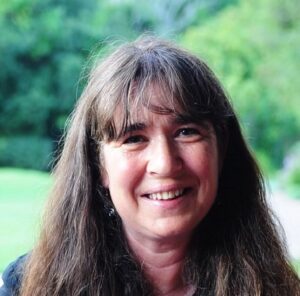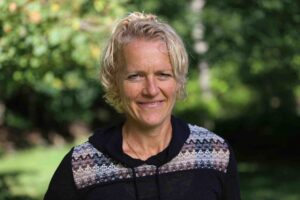
- This event has passed.
Rethinking biodiversity-based economies for justice and conservation
Presented by Rachel Wynberg, DST/NRF Bio-Economy Chair and Professor in the Department of Environmental and Geographical Sciences, the University of Cape Town and Dr. Sarah Laird, Co-Director, People and Plants International, the University of Kent.
Rachel Wynberg and Sarah Laird presently co-direct a process of “rethinking” the relationship between conservation and equity, and the biodiversity-based economy, including access and benefit-sharing. https://rethinking-abs.org/
Access and benefit sharing (ABS) is a policy approach that links access to genetic resources and traditional knowledge to the sharing of monetary and non-monetary benefits. It first found expression in the 1992 UN Convention on Biological Diversity (CBD), but is also part of the International Treaty for Plant Genetic Resources for Food and Agriculture (ITPGRFA), the World Health Organization’s Pandemic Influenza Preparedness Framework (PIP), and the Convention on the Law of the Sea (UNCLOS). It spans a wide range of sectors and issues, including equity in scientific research, conservation of biodiversity, and support for traditional knowledge and Indigenous and local stewards of biodiversity.
Multiple laws and policies are now in place across the world to implement ABS. While this might signal progress, questions remain about their efficacy. Typically, these laws and associated benefit-sharing agreements serve as legal compliance mechanisms that justify a ‘business as usual’ approach without fundamentally changing power relations or economic disparities. Moreover, while science and technology have transformed dramatically over the lifetime of ABS, including an exponential increase in the use of genetic sequence data – or digital sequence information (DSI) – ABS approaches have remained largely static and have narrowed to a transactional effort to channel financial benefits, with few addressing the relationship between benefit sharing, social justice, poverty alleviation, and biodiversity conservation. Rather than enhance scientific collaboration and capacity building, such policy efforts have often had a restrictive effect.
Despite a substantial investment of funding, capacity and resources, and a plethora of laws and studies, ABS has met with surprisingly little analysis as an approach to promote equity in science, remedy past and current injustices, and conserve biodiversity. It also remains fixed in pro-growth strategies to achieve conservation and development that are now well recognised to have failed. Our presentation aims to take a step back, and to think anew about models of development that underpin ABS and more transformative approaches to achieve justice and conservation in biodiversity-based economies. We will address the limitations of “benefit sharing” that does not include paying attention to power imbalances and inequities – and ask how we can think in more innovative ways about paradigms that de-emphasize scale and global markets, measure impact differently, and enable long-overdue recognition for other ways of knowing and being. We believe there is a great deal that has been learned over the years on ABS, biotrade and non-timber forest products, equitable research partnerships and commercialization, conservation and in other areas. But moving forward, laws must be more strategic, and they must accommodate vastly complex social, cultural, economic, and ecological conditions, as well as a dramatically changing world – in science and technology, business, severely threatened biodiversity, and in culture and society.
 Biography – Rachel Wynberg
Biography – Rachel Wynberg
Rachel Wynberg is a Professor in the Department of Environmental and Geographical Science at the University of Cape Town in South Africa where she holds a government-funded Research Chair focused on Environmental and Social Dimensions of the Bio-economy. With a background in both the natural and social sciences, she has a strong interest in inter- and trans disciplinarity and policy engagement across the humanities, arts and sciences. Her research spans topics relating to just, ethical and biodiverse bio-economies; seeds, farmers’ rights and agrobiodiversity; knowledge politics; agroecology and food sovereignty; the governance of wild species; and emerging technologies and equity in science.
As a scholar-activist and policy analyst, she has been involved in research and policy-making relating to biodiversity use and commercialisation since the inception of the Convention on Biological Diversity in 1992, advising governments, civil society organisations and international agencies. She continues to be actively involved with policy debates and civil society movements in southern Africa and globally, serving on the Boards of several NGOs, including Biowatch South Africa and the Union for Ethical Biotrade. She is an elected member of the Academy of Science in South Africa, and was a member of the High Level Panel for a Sustainable Ocean Economy (HLP) Expert Group and a lead author for the Intergovernmental Science-Policy Platform on Biodiversity and Ecosystem Services (IPBES) Sustainable Use assessment.
Further information can be found at: https://www.researchgate.net/profile/Rachel_Wynberg and at www.bio-economy.org.za
 Biography – Sarah Laird
Biography – Sarah Laird
Dr. Sarah A. Laird is a forester and ethnobiologist by training. Her interests cover a range of inter-related issues, including forest-based traditional knowledge and livelihoods, biodiversity policy, emerging technologies, and the ethical and conservation dimensions of the commercial use of biodiversity.
Since the 1990s, Sarah has collaborated with communities around Mt Cameroon on ethnobiological research and knowledge exchange programs to support and conserve threatened traditional management practices and cultural forests. Her current policy work includes that on the ethical and conservation implications of transformative scientific and technological advances, particularly within the framework of the Convention on Biological Diversity.
Sarah holds a BA in History from McGill University, an MSc in Forestry from Oxford University, and a PhD in Ethnobiology from the University of Kent.
She is Co-Director of People and Plants International (www.peopleandplants.org) and a Research Associate with the University of Cape Town’s Bioeconomy Chair (https://bio-economy.org.za/biodiversity-research/). Her publications can be found at: https://www.researchgate.net/profile/Sarah_Laird.
About People, Plants and the Law Online Lecture Series
The People, Plants, and the Law lecture series explores the legal and lively entanglements of human and botanical worlds.
Today people engage with and relate to plants in diverse and sometimes divergent ways. Seeds—and the plants that they produce—may be receptacles of memory, sacred forms of sustenance, or sites of resistance in struggles over food sovereignty. Simultaneously, they may be repositories of gene sequences, Indigenous knowledge, bulk commodities, or key components of economic development projects and food security programs.
This lecture series explores the special role of the law in shaping these different engagements, whether in farmers’ fields, scientific laboratories, international markets, or elsewhere.

